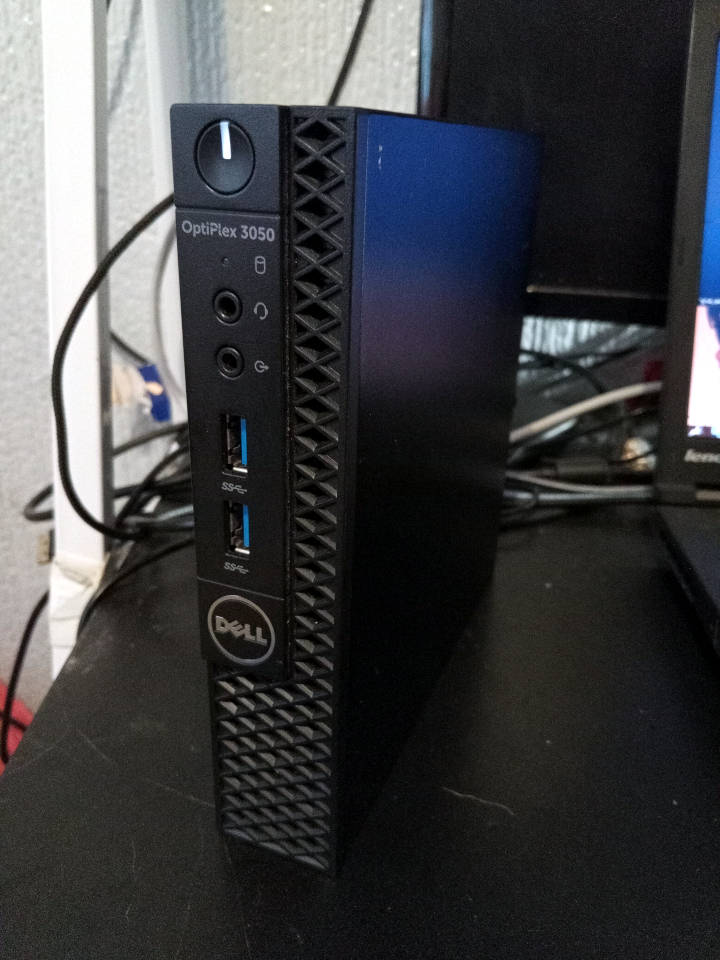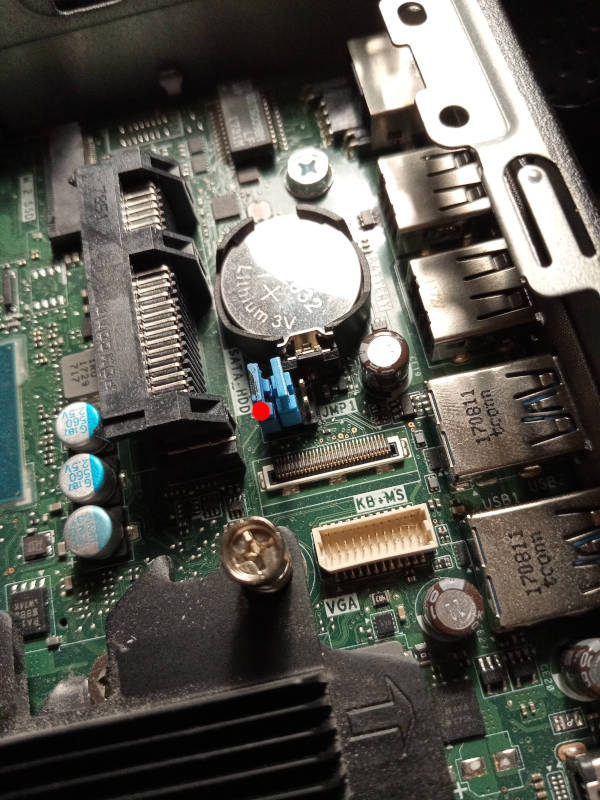dell3050.md 6.8 KB
title: Dell OptiPlex 3050 Micro x-toc-enable: true ...
PLEASE READ THESE INSTRUCTIONS BEFORE INSTALLING, OR YOU MIGHT BRICK YOUR MACHINE: SAFETY PRECAUTIONS


| Specifications | |
|---|---|
| Manufacturer | Dell |
| Name | OptiPlex 3050 Micro |
| Variants | OptiPlex 3050 Micro |
| Released | 2017 |
| Chipset | Intel Kaby Lake |
| CPU | Intel Kaby Lake |
| Graphics | Intel HD graphics |
| Memory | DDR4 SODIMMs (max 32GB, 2x16GB) |
| Architecture | x86_64 |
| Original boot firmware | Dell UEFI firmware |
| Intel ME/AMD PSP | Present. Can be disabled with me_cleaner. |
| Flash chip | SOIC-8 16MiB (128Mbit) |
W+: Works without blobs;
N: Doesn't work;
W*: Works with blobs;
U: Untested;
P+: Partially works;
P*: Partially works with blobs
?: UNKNOWN AT THIS TIME
| Features | |
|---|---|
| Internal flashing with original boot firmware | W* |
| Display (if Intel GPU) | W+ |
| Audio | W+ |
| RAM Init | W* |
| Payloads supported | |
|---|---|
| GRUB (libgfxinit only) | Works |
| SeaBIOS | Broken |
Introduction
Unavailable in Libreboot 20240612 or earlier. You must compile from source, or use a version newer than Libreboot 20240612.
Official information about the computer can be found here: https://www.dell.com/support/manuals/en-uk/optiplex-3050-micro/optiplex_3050-mff_om/processor-specifications?guid=guid-8ca53ab2-a85d-42d5-9106-5214220306aa&lang=en-us
Build ROM image from source
The build target, when building from source, is thus:
./mk -b coreboot dell3050micro_fsp_16mb
Mate Kukri's deguard utility disables the Intel Boot Guard on this
machine. Libreboot uses this by default, along with me_cleaner to provide
a neutered ME setup; unlike on other platforms, arbitrary code execution is also
possible inside the ME on this mainboard, giving it much higher potential for
software freedom in the future.
Issues
Before flashing, you must know that this board is still a work-in-progress. It is using this patchset from the author, Mate Kukri:
https://review.coreboot.org/c/coreboot/+/82053 (libreboot uses patch set 14)
Issues, as per Libreboot's testing, are as follows:
- PWM fan controls broken, so the system always run in a low-rpm state, even under stress conditions, which could lead to overheating under stress.
To mitigate the PWM bug, simply cut the blue wire on the fan connector, and
cut the red wire but jump the cut (on red) with a 10ohm resistor or so; cutting
the blue one bypasses PWM, so the fan runs at full speed (very loud), and the
red wire powers it, so the resistor on the red wire will slow the fan down, but
leave it running faster than on idle. You can also cap the CPU speed however you
wish, via the intel_pstate driver.
An i7-6700k has been tested, delidded (thermal grizzly conductonaut under the ihs) and arctic mx-6 paste on top (between ihs/cooler). On stress tests, the CPU got just above 60c with the above 10ohm mod.
If you're using a 10ohm resistor on the fan power, make sure it's at least a 2W one, since this is a very low-resistance fan (higher wattage).
Note that HDMI audio does work, but you have to select it in your audio
server e.g. pipewire. The pavucontrol utility in Linux (with pipewire) lets
you have a lot of control over audio I/O. Libreboot patches the board to add
a verb, so headphones should work.
Installation
Insert binary files
If you're using a release ROM, please ensure that you've inserted extra firmware required refer to the guide for that. (failure to adhere to this advice will result in a bricked machine)
Libreboot's build system automatically downloads and processes these files if you build Libreboot from source, but the same logic that it uses must be re-run if you're using a release image.
MAC address
This has a realtek NIC inside, instead of Intel, so the MAC address will not change. This means: there is no GbE region in the flash.
You can still use something like GNU MAC Changer to change your MAC address from Linux if you want to.
Flash a ROM image (software)
If you're already running Libreboot, and you don't have flash protection turned on, internal flashing is possible.


If you have factory firmware (Dell), you can short the service jumper. It's
near the RAM, under where the HDD goes (click the photos shown above).
Just put a short on it when booting,
and all flash protection is disabled; the factory firmware write might EFI
variables to flash during shutdown sequence, so you should pull the plug to
shut it down (remove the power by pulling the plug) after flashprog
says VERIFIED.
Flash a ROM image (hardware)
For general information, please refer to 25xx NOR flash instructions - that page refers to use of socketed flash.
The side cover comes off easily, and you can find the flash ICs next to the RAM. Simply remove the screw at the back. The top panel then slides forward, and you can remove the SSD caddy; from then on, the flash is accossible.
Observe the following photo of the flash (SOIC-8):


You can otherwise flash internally, including from factory firmware(if the service jumper is set).